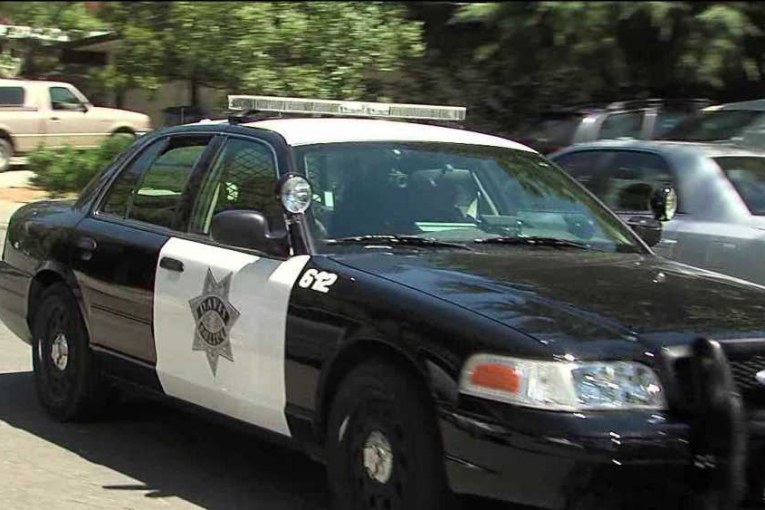

The city on Thursday afternoon put out revisions in two key areas following the Picnic Day incident.
In an email to the Vanguard, City Manager Dirk Brazil stated, “While we continue the search to find a qualified outside investigator, there are a few significant steps City staff can take in the meantime related to revising policies/procedures and increased community interaction and involvement.”
The statement read, “As the community is already aware, the City of Davis is undertaking a citizens complaint/internal affairs investigation into the Picnic Day 2017 incident and is in the process of selecting an independent outside investigator.”
As such, Police Chief Darren Pytel “will be meeting with the Police Community Advisory Board (CAB) to obtain the CAB’s assistance in vetting potential investigator candidates.” The CAB is an advisory panel composed of a variety of community members and meets on a monthly basis to provide input to the Chief and to take information back to the community.
To provide an additional forum for discussion of community concerns, “Chief Pytel will also be reactivating a citizens’ group that previously met for over a year to discuss issues of racial profiling and bias.”
These meetings ultimately led to development of the Davis Police Department’s current “alternative conflict resolution” program that allows citizens an opportunity to directly engage with officers that they feel have caused them harm. “This group will be meeting shortly,” the statement read.
The city also updated its Plainclothes/Unmarked Vehicle Policy.
“The Davis Police Department has, on a parallel path, revisited its policy regarding the use of plainclothes officers and unmarked vehicles,” the city announced.
The revised policy will expand the circumstances under which police personnel “must wear various types of uniforms that make them more-readily identifiable as law enforcement officers.”
The policy further requires “vehicles used in plainclothes assignments to be equipped with a forward-facing red light that must be used when the vehicle is used in taking enforcement action.
“Interim guidelines for undercover personnel have also been issued to underscore existing plainclothes policies that restrict circumstances when undercover officers may directly take enforcement action or use force,” the policy reads. “Such circumstances are limited to situations when an officer acts to protect themselves or another person from imminent injury or harm.”
A more detailed undercover policy is expected to be issued soon.
Finally, the department is also crafting a new policy “clarifying the operational circumstances under which undercover officers may be deployed, including identifying factors that must be considered in reaching such decisions.”
Chief Darren Pytel declined further comment at this time, though he did acknowledge that, under this new policy, there would no longer be undercover police officers at Picnic Day.
Three councilmembers that the Vanguard spoke with were in support of the changes.
Mayor Robb Davis told the Vanguard, “I think what the statement reflects is a willingness to move forward with changes without needing to wait for the final investigation.”
A key part of the policy is that the city will now have the opportunity to the vet the next investigator in hopes that community will catch mistakes like naming John McGinness investigator before they become hired.
“It also points out that using the collective wisdom of our community to help solve problems is the best way forward whether it’s with police issues or others,” the mayor said. “By having the CAB give input into selecting the lead investigator we benefit from the wisdom of some very respected members of our community.”
He added, “The statement gives me confidence that we can learn from what happened to clarify our policies and improve practices going forward.”
“I support the changes in city policy as outlined by the City Manager,” Councilmember Lucas Frerichs told the Vanguard.
“It’s essential that an independent investigation of the Picnic Day incident take place in a expeditious manner,” he said, noting that “clearly John McGinness was a poor choice to lead that effort.”
He added, “Vetting of the investigator by the CAB and restarting the community group dedicated to the issues of racial bias/profiling, as well as the announced changes in the Plainclothes/unmarked vehicle policy, are an important collective first step. Yet, the details to all of these changes are critically important.
“Moving forward, I’m also interested in some type/amount of additional police oversight, and I’m confident that the Council will be discussing that issue in the near term,” the councilmember concluded.
Finally, Mayor Pro Tem Brett Lee added his support to the changes: ” I am glad that the city has announced a transparent and community based process to identify and select an investigator. I am also glad that the city is examining the undercover policy and working on changes to that policy.”
Councilmember Will Arnold, whose statement on Monday may have been the final straw for Mr. McGinness, declined further comment. On Monday he said, ““I have thus far remained silent regarding the Picnic Day incident in hopes of allowing an independent, unprejudiced investigation to take place. But the recent on-air statements of former Sheriff McGinness are beyond the pale, reveal an ignorant and insensitive view toward African-Americans, and threaten the very independence and lack of prejudice we must preserve.”
Councilmember Rochelle Swanson did not respond to a Vanguard request for comments.
At this point it is unclear what the timeline is for the city to hire a new investigator, but the city did get a earful from about two dozen community members urging that the city conduct a fair and impartial investigation. One recurring theme was the skepticism that the police could police the police in this matter.
—David M. Greenwald reporting

